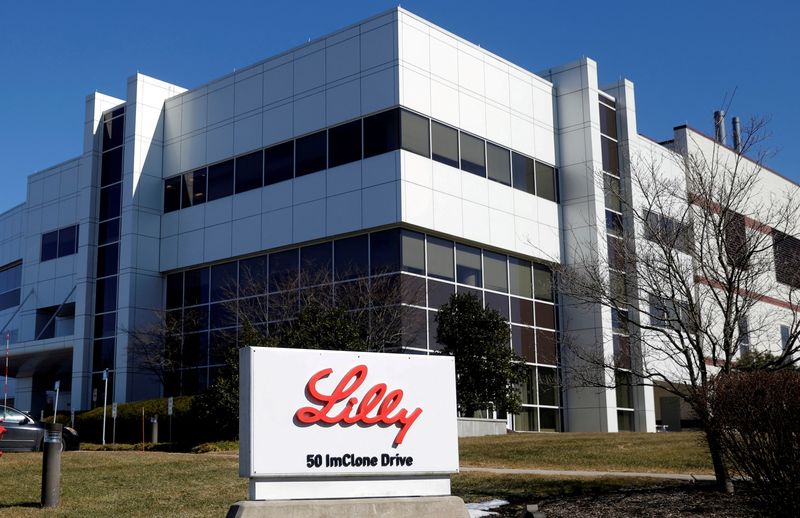By Deena Beasley and Julie Steenhuysen
(Reuters) - Eli Lilly (NYSE:LLY) and Co expects the U.S. Medicare health plan to back down from strict coverage limits on new Alzheimer's drugs as more evidence emerges in coming weeks showing that clearing amyloid brain plaques can help patients, a company executive told Reuters.
Lilly plans to release results from a trial of its experimental amyloid-targeting drug donanemab before the end of June. More study data on Leqembi, a rival drug from partners Eisai Co (OTC:ESAIY) Ltd and Biogen Inc (NASDAQ:BIIB), is also expected in the coming months.
Leqembi received accelerated approval from the U.S. Food and Drug Administration earlier this year, and a decision on full approval is due by July.
"We believe that they (Medicare) will provide what we would call outright coverage like they do for every other FDA-approved medication," Derek Asay, Lilly's senior vice president of government strategy and federal accounts, said in an interview. Lilly has not previously discussed its Medicare coverage optimism publicly.
The U.S. Centers for Medicare & Medicaid Services (CMS) did not immediately respond to a request for comment. The agency told Reuters earlier this month that it is committed to being nimble when reconsidering its coverage in light of new evidence related to clinical benefit.
Currently, Medicare - the government health plan for Americans 65 and over - will only pay for anti-amyloid drugs approved under the FDA's less rigorous accelerated review if patients are enrolled in a clinical trial. Drugs in the class that receive traditional FDA approval – which may eventually include Leqembi and donanemab - would be covered contingent on their participation in a registry that would track patients and how they fare.
Such "coverage with evidence development" requirements are rare and historically used by Medicare to evaluate medical devices.
Industry groups and patient advocates, such as the Alzheimer’s Association, say the envisioned policy would shut out patients and are pushing for less restrictive coverage.
Investors are watching closely for how restrictions could influence sales, as Medicare is estimated to insure 85% of Americans who would be eligible for the drugs. Leqembi costs $26,500 per year.
Asay said Medicare’s current plan "potentially leads to some coverage, but coverage that's both delayed and inequitable," limiting access for many underserved patient populations, including minorities.
He said Medicare will soon have a “significant amount” of new data on donanemab as well as Eisai and Biogen’s full data set on Leqembi.
Asay said he believes both Lilly and Eisai/Biogen would have ample evidence to address questions the agency has that could open the door to broader coverage. Lilly has also participated in discussions with CMS.
The severe Medicare restrictions were largely a response to a previous Alzheimer's treatment from Eisai and Biogen, Aduhelm, which won accelerated approval in 2021 with little evidence that it slowed cognitive decline.
THREE QUESTIONS
Under its coverage framework, CMS is looking for answers to three key questions: Do the drugs meaningfully improve health outcomes, such as slowing decline of cognition and function, for patients in a broad community practice? Do the benefits outweigh the risks? How do the benefits and harms change over time?
Eisai, which estimates that 100,000 U.S. patients would be eligible for Leqembi during its first three years on the market, has expressed confidence it will be able to provide those answers.
Lilly's Asay said: "We are very confident that we will be able to fully answer those three questions as well."
Other products facing similar CMS restrictions have languished.
Amyvid, Lilly's Alzheimer's imaging agent that can detect amyloid plaques on PET scans, has been subject to CMS' evidence development program for a decade.
Under the policy, the diagnostic is only available through enrollment in a Medicare-approved registry, and reimbursement is limited to one scan per lifetime.

A first registry failed to recruit enough minorities. In the second, started two years ago, there are still 18 states without a single site enrolled, Asay said.
"It shuts out many patients," said Dr. Maria Carrillo, chief science officer of the Alzheimer’s Association, "especially minorities and rural patients."